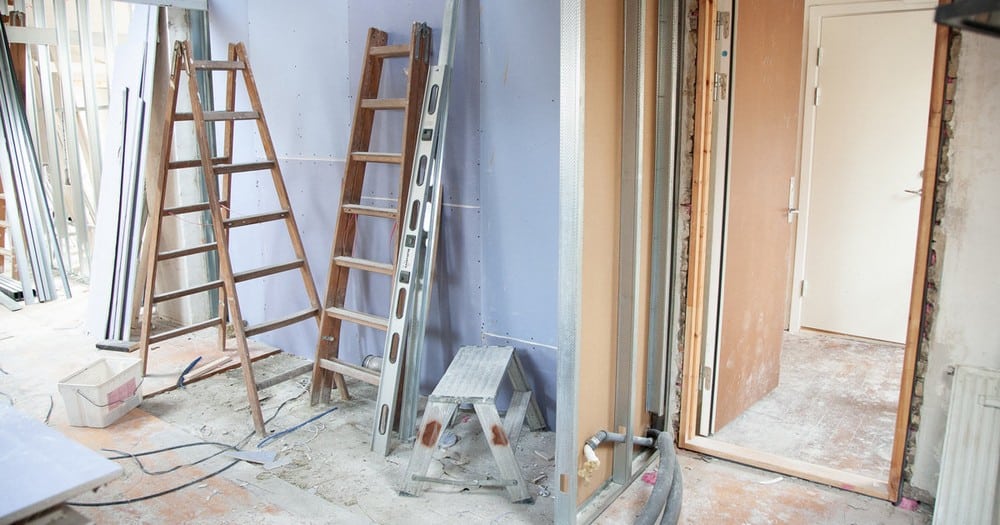
Embarking on your first home renovation is exciting but can feel a little daunting if you enter into it without proper planning. There are several things to consider before starting your project. In this guide, we’ll discuss some key points to consider before getting started on your home renovation journey.
Define your goals
What’s driving your renovation? Are you upgrading for comfort, increasing resale value, or simply wanting to modernize the space? Identifying your goals ensures you focus on projects that align with your priorities. For example, updating a bathroom can boost resale value, while creating a home office might cater to remote work needs. Having clear objectives will provide guidance that you can refer back to for every decision you make.
Set a realistic budget
Before starting, determine how much you’re comfortable spending. Knowing how much others are spending on their own renovations can help you to set a realistic budget for your project. Keep in mind that a recent study by Compare the Market’s home loans team found that Americans spend an average of $4,639 USD annually on home renovations. Consider your financial capacity and research the typical costs for your desired updates, such as kitchen remodels or flooring replacements. Don’t forget to allocate funds for unexpected expenses.
Research contractors thoroughly
If you’re not doing the renovation yourself, you’ll need to consider the contractors you’ll use to get the project done. Choosing the right contractor can make or break your renovation experience. Ask for recommendations from friends or family, read online reviews, and get free quotes to assess their reliability. Always ensure they’re licensed and insured. A trustworthy contractor will communicate clearly, provide realistic timelines, and understand your vision.
Prioritize your projects
Renovations can be expensive, so it’s essential to focus on areas that will make the biggest impact. Prioritizing projects based on your goals can also help you manage your budget more effectively. Kitchens and bathrooms are often top priorities for first-time renovators as they add significant value to a home. If your budget is tight, tackle one area at a time instead of spreading resources too thinly across multiple projects.
Plan for unexpected costs
No matter how meticulous your planning, unforeseen expenses are inevitable. Structural issues, outdated wiring, or unexpected material shortages can all drive up costs. Sometimes it could just be that you wish to do a little more to the home once you get started. To avoid stress, when calculating your potential costs, include a contingency fund of 30 percent of your budget. This cushion will keep you prepared for any surprises without derailing your project.
Start small
For your first renovation, it’s wise to take on a manageable project. Simple upgrades like painting walls, installing new light fixtures, or refreshing cabinet hardware can make a noticeable difference without requiring significant investment. Starting small helps build your confidence for more complex projects in the future. It also helps you gain a better understanding of your own skill set and whether or not certain tasks are better left to professionals.
New homes vs. existing homes
According to research by the National Association of Home Builders, buyers of new homes were the most likely to spend larger amounts of money in the first year, with an average of $11,930 spent. This is compared to buyers of existing homes spending an average of $5,761 on renovations in the first year of ownership. This could be an important factor to consider when deciding between purchasing a new home or an existing one.
Get permits early
Many home renovations, especially structural changes, could require permits from local authorities. Skipping this step can lead to fines or delays. Research the permits required in your area and apply for them early to avoid holding up your project. This ensures your renovation complies with building codes and avoids future complications during resale. It’s always better to play by the rules and have peace of mind, rather than face costly consequences later on.
Choose durable materials
While it may be tempting to cut costs, investing in high-quality, durable materials pays off in the long run. Materials like quartz countertops, solid wood flooring, or energy-efficient windows not only look great but also stand the test of time. Balance aesthetics with functionality to ensure you get the most out of your investment. In the end, choosing quality materials may save you money on repairs and replacements in the future.
Stay involved
Even if you choose to hire a contractor for the job, staying engaged in the process is crucial. Visit the site regularly to ensure the work aligns with your vision, ask questions, and address issues as they arise. Being involved helps avoid miscommunication and ensures you’re happy with the end result. It also allows you to catch any mistakes early on and address them before they become bigger problems.
By conducting research before you begin and familirizing yourself with common issues that arise, you’ll be better equipped to navigate your first home renovation with confidence. With careful planning and realistic expectations, your dream home transformation is well within reach!








